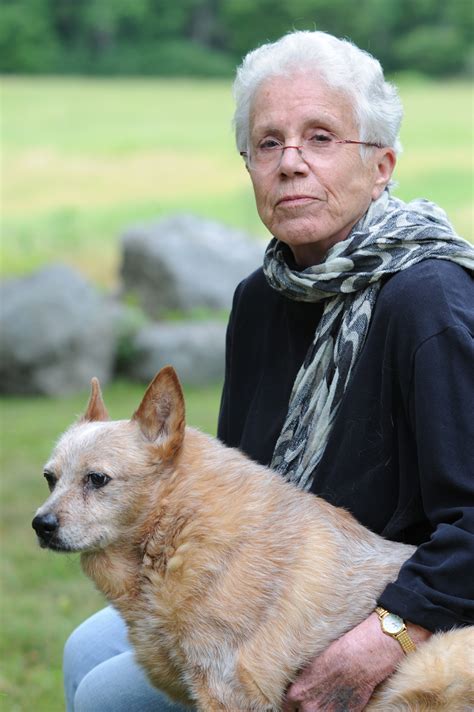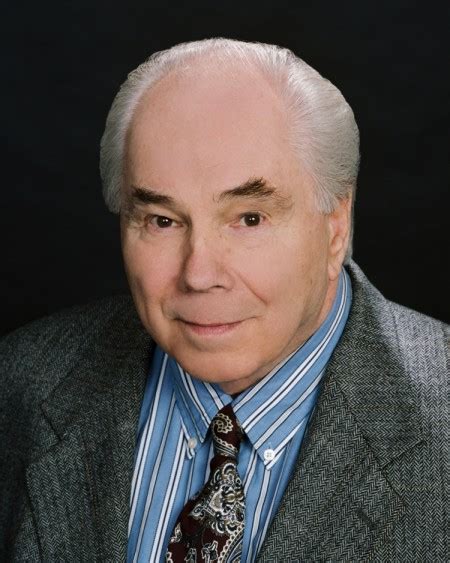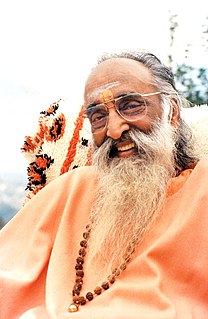A Quote by Elizabeth Marshall Thomas
From the very dawn of time until now and well into the future... human-animal companionship is at the very core of our instincts not only for mutual survival, but mutually rewarding relationships.
Related Quotes
The relationship between human and animal is wholly symbiotic. The person needs the animal for comfort and companionship, and the animal needs the love and caring of the human. It is a classic "win-win" situation. It sounds simple - and it is. That is why it works so well. In most cases, it will be remarkably spiritually uplifting to both human and animal.
If the basic human nature was aggressive, we would have been born with animal claws & huge teeth -- but ours are very short, very pretty, very weak! That means we are not well equipped to be aggressive beings. Even the size of our mouth is very small. So I think the basic nature of human beings should be gentle.
There was an idea that God created man different from other animals, because man was rational and animals had drives and instincts. That idea of a rational man that was specially created went out the window when Darwin showed that we evolved from animal ancestors, that we have instincts, much as do animals, and that our instincts are very important. It was a much more sophisticated, nuanced, and rich view of the human mind.
You and I are standing this very second at the meeting place of two eternities: the vast past that has endured forever, and the future that is plunging on to the last syllable of recorded time. We can't possible live in either of those eternities - no, not even for a split second. But, by trying to do so, we can wreck both our bodies and our minds. So let's be content to live the only time we can possible live: from now until bedtime.
Yet again, an ancient answer echoes across the centuries: Listen! Listen to stories! For what stories do, above all else, is hold up a mirror so that we can see ourselves. Stories are mirrors of human be-ing, reflecting back our very essence. In a story, we come to know precisely the both/and, mixed-upped-ness of our very being. In the mirror of another's story, we can discover our tragedy and our comedy-and therefore our very human-ness, the ambiguity and incongruity, that lie at the core of the human condition.
Presently we have to train our unconscious to function better. Then we can depend upon our instincts, that will be noble instincts. At this moment, our instincts are very impure. When we have practiced for a long time, living the higher values of life and following the instructions of great masters or the Scriptures, that is when you have trained your unconscious. Then when a situation comes, you can to an extent, depend on your inner voice.
What differentiates human from lower-animal consciousness is time. You can't explain the concept of "tomorrow" to your dog. Our consciousness is dominated by time - We're constantly running simulations of the future. Our brain is a prediction machine. The hallmark of intelligence, indeed of genius, is the number and complexity of the feedback loops we use in predicting the future.
I am dedicating the majority of my wealth to improving education. It is the key to the survival of the human race. We have to plan for our collective future - and the first step begins with the social, emotional, and intellectual tools we provide to our children. As humans, our greatest tool for survival is our ability to think and to adapt - as educators, storytellers, and communicators our responsibility is to continue to do so.
The following proposition seems to me in a high degree probable—namely, that any animal whatever, endowed with well-marked social instincts, the parental and filial affections being here included, would inevitably acquire a moral sense or conscience, as soon as its intellectual powers had become as well, or nearly as well developed, as in man. For, firstly, the social instincts lead an animal to take pleasure in the society of its fellows, to feel a certain amount of sympathy with them, and to perform various services for them.

































